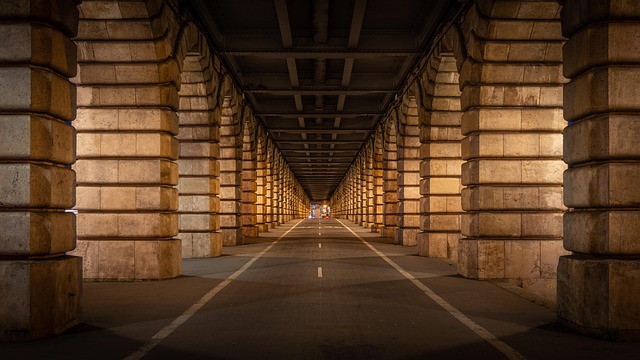Karachi, a vibrant but noisy metropolis, grapples with significant environmental challenges, particularly noise pollution. Researchers employ comprehensive noise audits to identify sound hotspots, revealing the impact of traffic, construction, and social gatherings on nearby neighborhoods. By prioritizing data-driven solutions, such as stricter zoning laws, quieter technologies, increased greenery, and community engagement, Karachi can mitigate noise pollution, enhancing its urban environment and residents' quality of life.
Karachi, Pakistan’s vibrant metropolis, faces a silent yet pressing challenge—noise pollution. In this comprehensive audit, we explore the noise levels across various areas of Karachi, delving into its causes and effects on both residents and the environment. From bustling markets to industrial hubs, we analyze strategies to mitigate this urban menace. This article aims to provide insights into creating quieter, healthier spaces for Karachi’s diverse population. Discover practical solutions as we navigate towards a calmer future for Pakistan’s economic powerhouse.
Understanding Noise Pollution in Karachi: A City's Audit

Karachi, a vibrant and bustling metropolis, like many urban centers, grapples with noise pollution as a significant environmental concern. Understanding noise levels in this sprawling city is crucial for gauging its impact on residents’ well-being and quality of life. The audible chaos of Karachi’s streets, markets, and industrial areas has led to a comprehensive audit of noise pollution across various sectors.
This audit involves meticulous measurements and analysis of sound levels at different locations throughout the day. By studying these data points, researchers can identify hot spots where noise exceeds safe limits set by environmental authorities. In Karachi, this includes assessing the impact of traffic, construction activities, manufacturing plants, and even social gatherings on nearby neighborhoods. Such an evaluation is essential in devising strategies to mitigate noise pollution, ensuring that the city’s vibrant energy does not come at the cost of its residents’ peace and health.
Impact of High Noise Levels on Karachi's Residents and Environment

The bustling metropolis of Karachi, with its vibrant energy and diverse culture, is home to millions. However, a silent menace lurks in the background—high noise levels that permeate throughout the city. In terms of impact, excessive noise has profound effects on both residents and the environment.
For the people of Karachi, constant exposure to loud noises can lead to severe health issues, including hearing loss, high blood pressure, and sleep disturbances. It disrupts the harmony of daily life, making it challenging for individuals to relax and find peaceful moments within their own homes. In terms of environmental impact, noise pollution contributes to the degradation of natural habitats, especially in residential areas close to bustling markets or industrial hubs. This disturbance can disorient local wildlife and disrupt ecological balance.
Strategies for Mitigating Noise Pollution in Karachi's Urban Spaces

To mitigate noise pollution in Karachi’s urban spaces, a multi-faceted approach is necessary. One key strategy involves implementing stricter zoning regulations to separate residential areas from industrial and commercial hubs, reducing direct exposure to loud noises during peak hours. Encouraging the adoption of quieter technologies and equipment in industries, such as using electric or hybrid vehicles and low-noise machinery, can significantly lower ambient noise levels. Additionally, planting more trees and greening urban areas acts as a natural buffer against sound, providing respite from noise pollution.
Community engagement is another powerful tool. Public awareness campaigns that educate citizens about the effects of noise pollution and promote responsible behavior can lead to collective action. This includes encouraging neighbors to keep noise levels down during certain hours and supporting initiatives for quieter public spaces, like parks and playgrounds. Collaborative efforts between local authorities, community leaders, and residents can foster a more peaceful urban environment, enhancing the quality of life for all Karachis.
Karachi, as a vibrant metropolis, faces significant challenges with noise pollution, impacting its residents’ quality of life and the city’s overall environment. This audit highlights the urgent need for effective strategies to mitigate high noise levels. By implementing targeted interventions, such as traffic management, green space development, and strict enforcement of noise regulations, Karachi can strive towards becoming a quieter, more livable urban space. Addressing this issue is crucial for the well-being of its citizens and the preservation of the city’s unique tapestry in the face of rapid urbanization.





Leave a Reply
You must be logged in to post a comment.